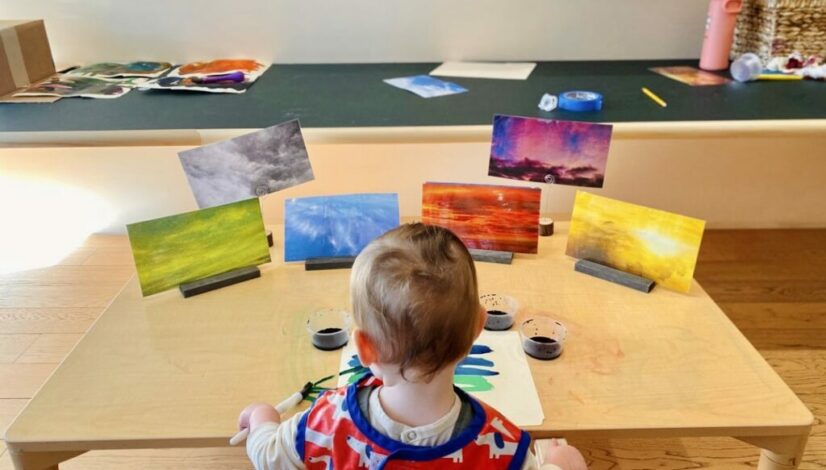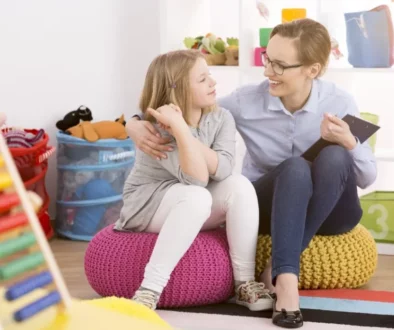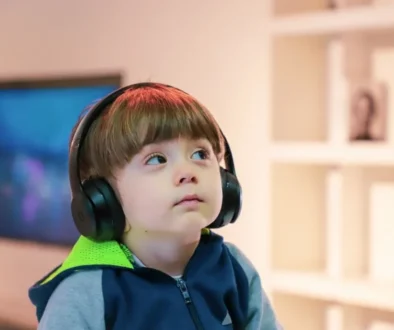The Importance of Monitoring Your Child’s Developmental Milestones
Raising a child is a journey filled with joy, challenges, and countless moments of discovery. Among these, keeping track of your child’s developmental milestones is crucial. These milestones aren’t just checkboxes to tick off; they serve as essential indicators of your child’s growth and progress, offering a roadmap to understanding their development in areas like speech, motor skills, social interaction, and cognitive abilities.
Why Are Developmental Milestones Important?
Developmental milestones help parents and caregivers know what to expect at different stages of their child’s growth. These benchmarks provide a guide to typical development, allowing you to spot if your child is on track or if there are areas where they might need extra support. Early detection of developmental delays can lead to early intervention, which is critical in addressing any potential challenges your child may face.
Having spent years working with children from all walks of life, I’ve seen firsthand how early recognition of developmental issues can make all the difference. Sometimes, a slight delay might be nothing more than a quirk in your child’s pace, but other times, it signals a need for closer attention.
The Role of Parents in Monitoring Milestones
As a parent, you are your child’s first and most constant observer. You see them every day, so you’re in the best position to notice subtle changes or delays in their progress. Actively watching their milestones helps you stay informed about their development. This doesn’t mean becoming overly anxious about every detail, but being observant can make a significant difference in your child’s growth.
I remember working with a young boy whose parents noticed he was struggling with speech compared to his peers. Their early observation led to speech therapy, and today, he’s a confident communicator. It’s these small moments of attentiveness that can shape a child’s future.
Common Developmental Milestones to Watch
Every child is different, and they may reach milestones at their own pace. However, general timelines can serve as a guide:
- Physical Milestones: These include gross motor skills like rolling over, sitting up, crawling, and walking. Fine motor skills, such as grasping objects, holding a spoon, or scribbling with a crayon, are also key indicators.
- Cognitive Milestones: Cognitive development includes skills like recognizing people, problem-solving, and understanding cause and effect. These milestones reflect how your child thinks, learns, and explores their world.
- Social and Emotional Milestones: These involve how your child interacts with others, their ability to express emotions, and how they develop relationships. Smiling, playing peek-a-boo, and showing preference for certain people are some examples.
- Communication Milestones: This area includes both speech (talking) and non-verbal communication (gestures, eye contact). Babbling, saying first words, and eventually forming sentences are important markers of language development.
What to Do If You Notice a Delay
It’s natural to worry if your child isn’t meeting certain milestones, but it’s important to remember that all children develop at their own pace. Some may advance quickly in one area while taking more time in another. However, if you notice significant delays or if your child seems to be regressing, it’s crucial to consult with your pediatrician.
Early intervention is key in addressing developmental delays. Many resources and therapies can support your child in catching up to their peers. For example, speech therapy can assist with communication delays, while occupational therapy can help with motor skills. The earlier these interventions are applied, the more effective they tend to be.
Encouraging Development Through Play
Play is one of the most effective ways to support your child’s development. Through play, children learn new skills, explore their environment, and practice social interactions. Simple activities like reading to your child, playing with blocks, or engaging in pretend play can significantly enhance their cognitive, motor, and social skills.
Moreover, playtime provides an opportunity for you to bond with your child. This connection is essential for their emotional development, giving them a sense of security and confidence as they explore the world around them.
When to Seek Professional Help
While some variability in reaching milestones is normal, certain red flags may indicate a need for professional assessment. For example, if your child is not making eye contact, not responding to their name by 12 months, not walking by 18 months, or not using two-word phrases by 24 months, these could be signs of a developmental delay.
Your pediatrician can conduct a thorough evaluation and may refer you to specialists, such as a developmental pediatrician, speech therapist, or psychologist, depending on the nature of the concern. Early and accurate diagnosis is vital in providing the best possible outcome for your child.
In my years of practice, I’ve often encountered parents who were unsure whether to raise concerns. I always say, trust your gut. It’s better to ask and find out it’s nothing than to wait and miss an opportunity to support your child’s development.
Building a Support System
Parenting is a journey that doesn’t have to be undertaken alone. Building a support system of family, friends, and professionals can make monitoring your child’s developmental milestones easier and less stressful. Join parent groups, seek out resources from your child’s school or local community centers, and don’t hesitate to reach out for help when needed. Sharing experiences with other parents can also provide reassurance and valuable insights.
Final Thoughts
Monitoring your child’s developmental milestones is an ongoing process that requires patience, observation, and sometimes, a bit of help from professionals. By staying informed and engaged, you can support your child’s growth and development. Remember, the goal isn’t to compare your child to others but to understand and nurture their growth. Every child’s journey is different, and by paying attention to these milestones, you’re laying the groundwork for a healthy and fulfilling life for your child.
It’s Ok To Need Help
If you’re concerned about your child’s developmental progress or just want to learn more about how to support their growth, don’t hesitate to reach out. Contact our clinic today to schedule a consultation or to get more information on developmental assessments and early intervention options. Early action can make a significant difference in your child’s development, so let’s work together to give them the best start possible. Call us now to get started!
Common Questions About Developmental Milestones
What are the key developmental milestones for toddlers?
Developmental milestones for toddlers include physical skills like walking, cognitive abilities such as problem-solving, social interactions like playing with others, and communication milestones like saying their first words. Monitoring these milestones helps track your child’s growth and identify any potential delays early on.
How can I support my child’s development through play?
Engaging in activities like reading, building with blocks, or pretend play can significantly enhance your child’s cognitive, motor, and social skills. These play-based interactions are crucial for your child’s overall development.
When should I seek professional help for developmental delays?
If your child is not meeting specific milestones, such as not making eye contact by 12 months or not walking by 18 months, it may be time to consult a pediatrician. Early intervention can be critical in addressing developmental concerns effectively.
Links and Resources
Centers for Disease Control and Prevention (CDC) – Developmental Milestones
American Academy of Pediatrics (AAP) – Developmental Milestones and Delays
Mayo Clinic – Child Development: Milestones Overview
KidsHealth – Developmental Milestones
Zero to Three – Understanding Developmental Milestones



